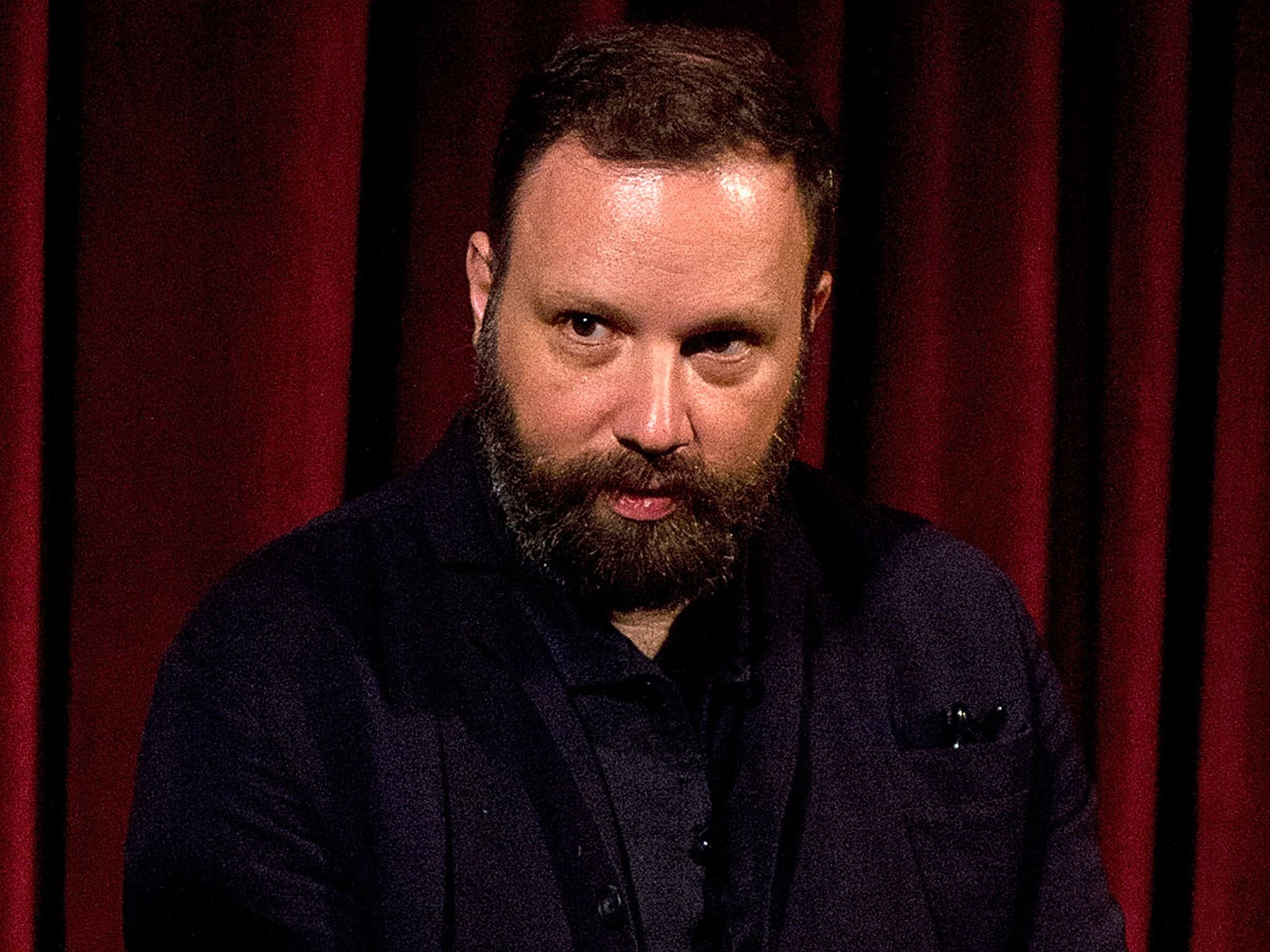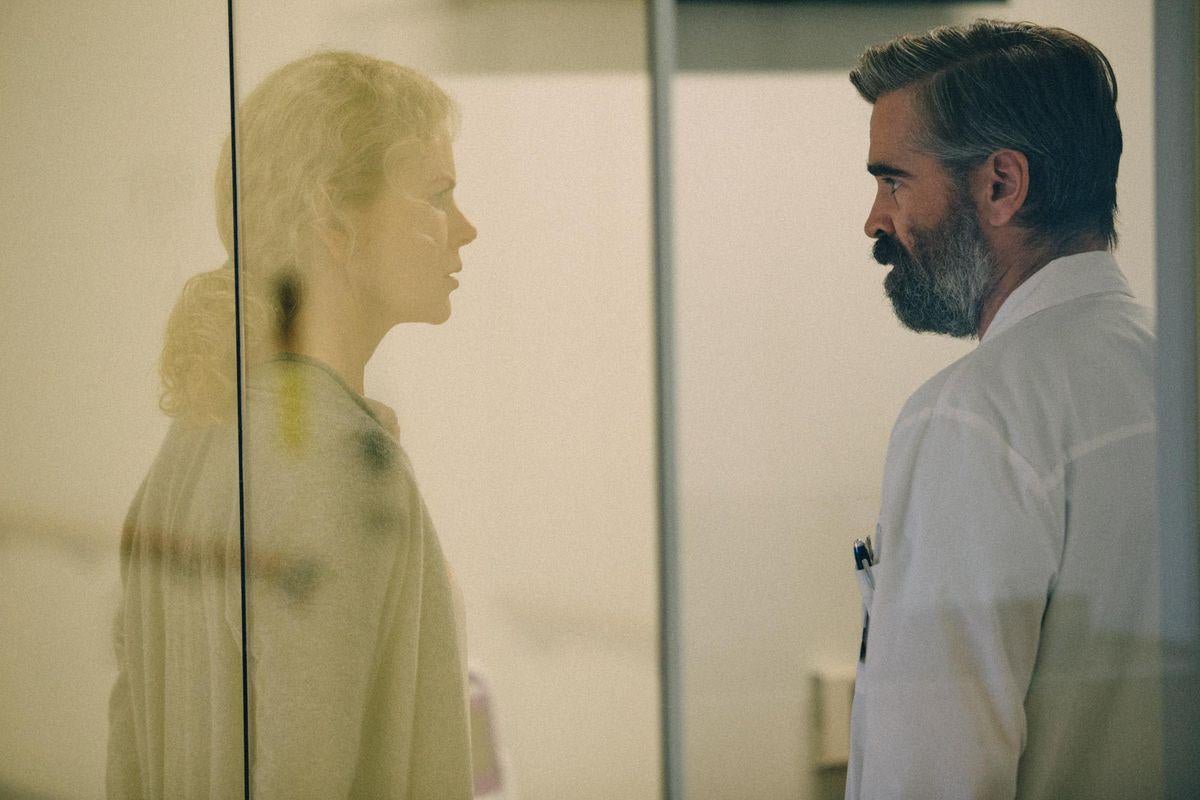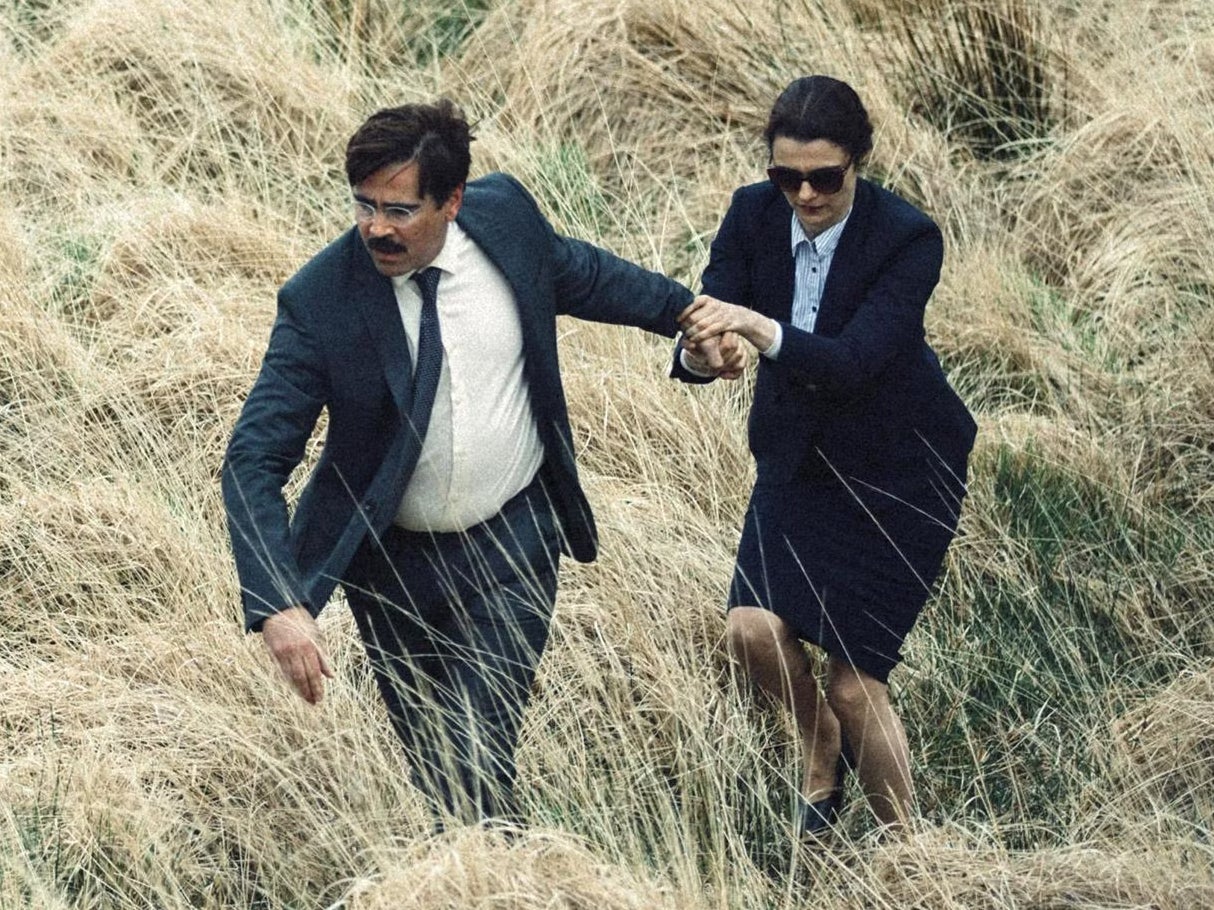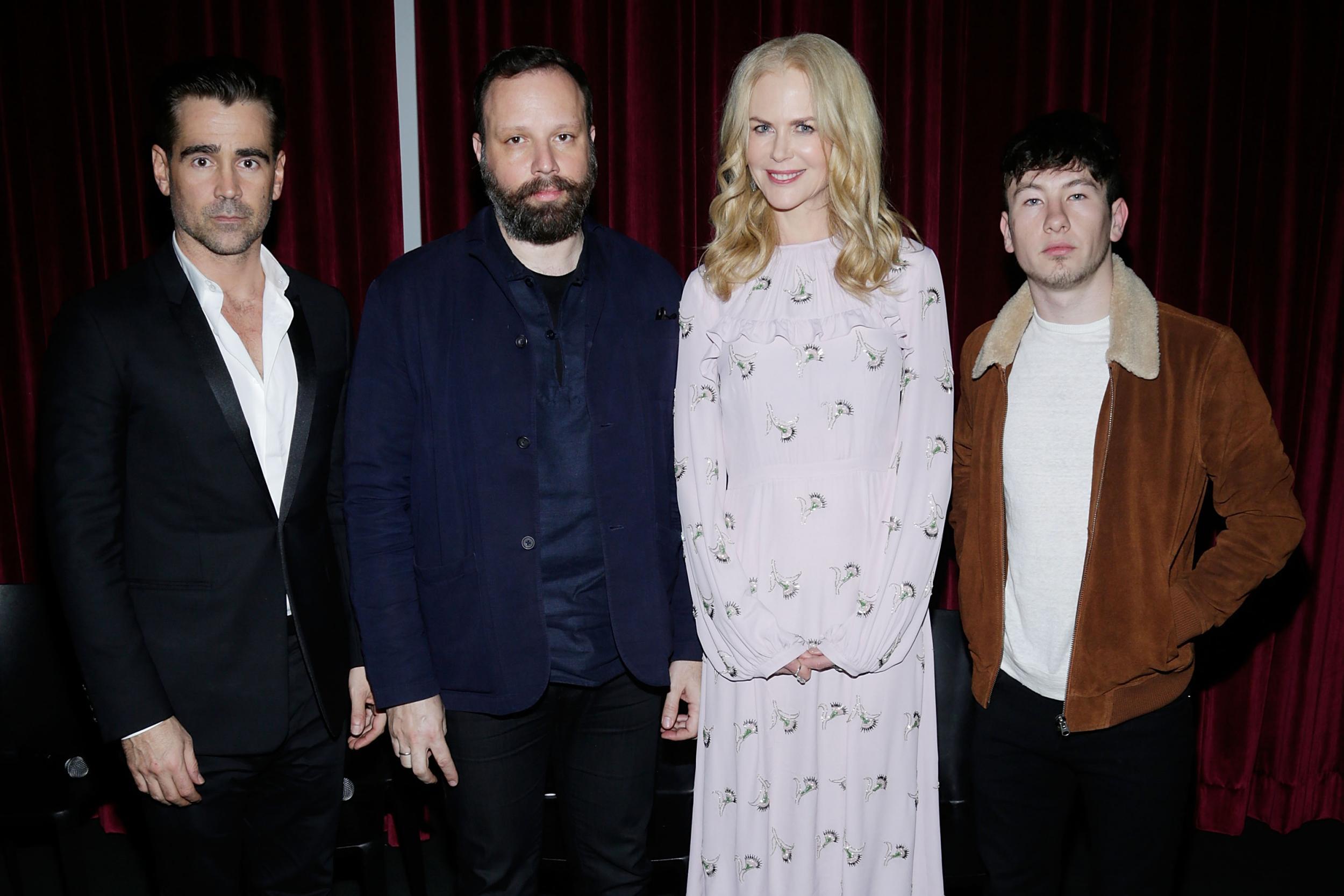Yorgos Lanthimos: 'I don't know how to make a straightforward film' - interview with The Killing of a Sacred Deer director
The Independent sat down with the director to talk his problem with genre, Black Mirror and the origins of his high-concept ideas

Your support helps us to tell the story
From reproductive rights to climate change to Big Tech, The Independent is on the ground when the story is developing. Whether it's investigating the financials of Elon Musk's pro-Trump PAC or producing our latest documentary, 'The A Word', which shines a light on the American women fighting for reproductive rights, we know how important it is to parse out the facts from the messaging.
At such a critical moment in US history, we need reporters on the ground. Your donation allows us to keep sending journalists to speak to both sides of the story.
The Independent is trusted by Americans across the entire political spectrum. And unlike many other quality news outlets, we choose not to lock Americans out of our reporting and analysis with paywalls. We believe quality journalism should be available to everyone, paid for by those who can afford it.
Your support makes all the difference.Genghis Khan once declared: “I am the flail of God. Had you not created great sins, God would not have sent a punishment like me upon you,” but you’d be forgiven for mistaking the quote for words spoken by Greek director Yorgos Lanthimos.
Supporting evidence: the scene in dystopian fable The Lobster (2015) which sees a man forced to place his hand into a burning toaster, not forgetting the moment in Dogtooth – his 2009 breakout – that shows a father beating his daughter over the head with a videotape.
Each new world presented by Lanthimos comes with its own established rules (masturbation and film-watching the no-nos in the case of the latter two). Naturally, disobedience ensues and punishment’s inflicted.
“Having rules means that sometimes people break them and that means punishment,” Lanthimos says with a wicked smile. “I’ve not consciously decided that [it’s] an important issue I need in my films – it’s a result of the structure of them.”
It’s a testament to his directorial guide that, while Lanthimos’s films leave you departing the cinema in dire need of a banister to grasp, the harrowing experience is – somehow – ultimately rewarding.
It’s the same again with new psychological thriller The Killing of a Sacred Deer, a tale following Colin Farrell’s cardiothoracic surgeon whose happy life is rocked by an ominous teenage boy (Barry Keoghan) who unleashes a plague on his unsuspecting family (Nicole Kidman, Raffey Cassidy and Sunny Suljic).

Lanthimos refuses to ease you into its world. The opening shot is perhaps the year’s most shocking – a close-up of a beating heart unwittingly forced upon you in the manner of a parent shoving a forkful of greens into their child’s face.
Yorgos smirks. “In the script, there was a whole operation going on so you saw the doctors, the instruments, and patient – but the close-up of the heart beating was the first thing we shot. When I saw it I just thought we didn’t need any other. It’s a good way to open a film.”
Throughout the conversation, Lanthimos sits as close to the edge of an oversized couch as he can manage, his hands fidgeting with sporadic unease. He speaks not so much as someone possessing a method to his madness than a man who can’t really recall said method. He also wears great trousers.

Watch Apple TV+ free for 7 days
New subscribers only. £8.99/mo. after free trial. Plan auto-renews until cancelled

Watch Apple TV+ free for 7 days
New subscribers only. £8.99/mo. after free trial. Plan auto-renews until cancelled
In short, Lanthimos doesn’t assume the guise of a person you’d expect to conjure up acclaimed oddities able to make audiences shriek, howl and wince in a matter of shots. He writes the book in evoking emotion from an audience – but what response does he actually want to draw from those who experience his films?
“Me, personally, what I want is to allow people to be engaged actively in watching the film,” he says. “I like to construct films in a way that makes you feel a bit uncomfortable, [but so you’ll still] be able to enjoy them, be intrigued [and] start to think about the meaning of things – and hopefully by the end of it, you’ll have some strong desire to keep thinking about them.”
Born in Athens in 1973, Lanthimos was raised by his mother. She died when he was 17. “I wasn’t a film buff,” he says, naming Bruce Lee, Indiana Jones and John Hughes as casual interests. It was the work of Andrei Tarkovsky and Robert Bresson that changed him “gradually” after enrolling in film school aged 19 commencing his journey from film student to director of films destined to be studied.
Lanthimos has directed six feature-length films since 2001. It wasn’t until the success of Dogtooth – a film following three teenagers living in isolation under their controlling father – that his name caught on as one to watch out for. In 2015, Lanthimos steered absurdist black comedy The Lobster – starring Farrell, Rachel Weisz and Léa Seydoux – to a box-office haul not usually amassed by films such as his (£11.8m).
The high-concept plots which shape his films are conceived alongside writing partner Efthymis Filippou, the origins of which he struggles to recall.
“It starts from different places,” he says. “It’s a fragment of a story or a situation that we observe – it builds from there and two years later I’m here trying to remember where it all started from.”
How would he categorise them?
“You mean in terms of genre? The idea is that we don’t. Hopefully, we’re creating films that are a thing unto their own and don’t belong in any genre."
He continues: “We don’t know how to make a straightforward comedy or a straightforward thriller or horror film. This is what we know how to do.”

Such is the uncanny nature of Lanthimos’s films that 120 minutes doesn’t seem like nearly enough time to explore their worlds. It’s this notion that has inspired the man himself to “fool around with” the idea of translating a previous feature into a TV series, something he once came close to doing.
“I’ve played around with the notion of making a series on the premise of Alps because it’s one of the films no one saw,” he reveals, referencing the 2011 release following a group of people who start a business where they impersonate the recently deceased in order to help their clients through the grieving process. Curb your excitement, though: he admits that revisiting his own work “is not the most exciting thing” for him.
The thought of a Lanthimos television show immediately brings Charlie Brooker’s Black Mirror to mind, a series that attracts such unique talent with each new run – Joe Wright, Jodie Foster and John Hillcoat being just three of the filmmakers lured to the Netflix property over the past few years. Lanthimos’s unique worlds, I tell him, would not be unwelcome within the confines of an episode.
It’s not the first time he’s heard the suggestion. “It’s been discussed,” Lanthimos tells me. “We never got around to doing one, but I met the guys. It would have been interesting. Maybe one day in the future.”

Until then, Lanthimos will unite with “great human being” Farrell for the third time (“Why get into new adventures [without] someone you get along with?” he asks). The project – an Amazon Studios limited series about the Iran-Contra affair – marks a first: the director will be working from someone else’s script.
Next up, however, is The Favourite starring Rachel Weisz as a duchess in a love triangle with Queen Anne (Olivia Colman) and her younger cousin (Emma Stone). If it sounds like a departure – a titillating 18th century period piece – can we rest assured it’ll feature the Yorgos Lanthimos trademark of punishment?
He fixes his gaze on the ceiling. “It’s slightly different.”
His eyes flick downwards, lips curling into a defeated smirk. “But I guess there is some kind of punishment, yes.”
‘The Killing of a Sacred Deer’ is in cinemas on 3 November
Follow Independent Culture on Facebook
Join our commenting forum
Join thought-provoking conversations, follow other Independent readers and see their replies
Comments